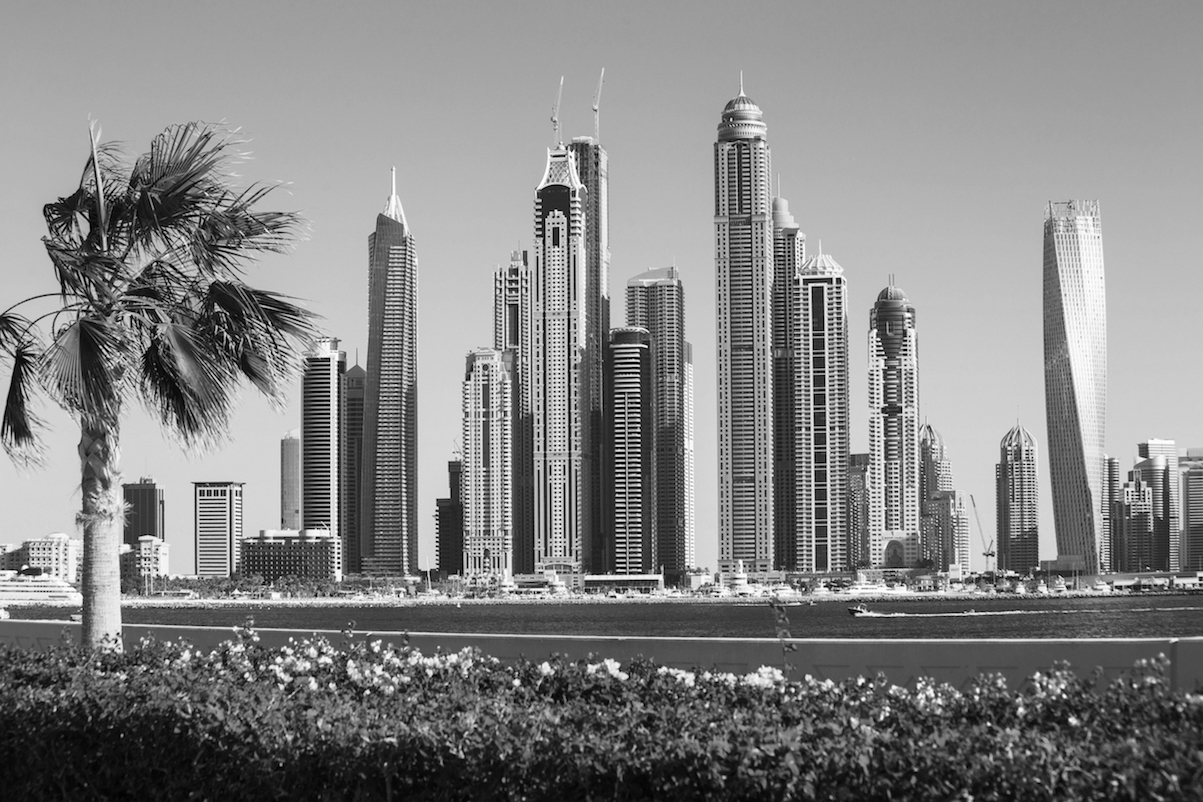The rise in Brent crude to $60 a barrel and the trade volume ballast generated by the world’s first post Lehman synchronised economic recovery is hugely positive for UAE economic growth in 2018. After all, the UAE is unique because Abu Dhabi’s 100 billion barrels of proven oil reserves is complemented by Dubai’s role as the Gulf’s financial, logistics, aviation, shopping and services hub. The UAE growth delta is unquestionably positive and GDP growth can well double to 3% next year. The 10% fall in the US Dollar Index has also historically been a reflationary tailwind for the UAE property markets. I also expect a counter-cyclical, expansionary Federal budget to offset dismal private consumer spending and the protracted banking credit crunch. Ceteris paribus, higher government spending, faster payment of contractor debt and a new public sector liquidity cycle/fiscal stimulus has had a ‘trickle up’ impact on local property markets.
Unfortunately, benign macro factors will not offset those that caused rents and capital values to fall sharply since 2014. Why?
One, corporate consolidation (think NBAD-First Gulf, Ipic-Mubadala), the sharp downtown in global aviation, the oil and gas capex slump, the epic plunge in retail sales (Amazon is the Evil Empire for shopping malls!) and the sheer unaffordability of high end private education and health care has led to tens of thousands of executive job losses.
Two, the Federal Reserve’s easy money era ended in 2017. The American central bank will shrink its balance sheet by $270 billion and raise interest rate give times in 2018. This means three month Emirate Interbank Offered Rate (EIBOR), the benchmark for consumer loans and home mortgages in the UAE, could well rise by another 150 basis points in 2018. This is hugely negative for a home mortgage market entirely dependent on floating rate bank debt.
Three, the introduction of the Value Added Tax (VAT) at a time of flat consumer and business spending is negative for sentiment and private consumption. This will cast a big chill on demand for new home and office spaces in 2018.
Four, despite the significant fall in home prices since 2014, affordability metrics relative to average income are far too high even now. Note that the only active villa market is the AED 2–3 million owner–occupier segment.
Five, the luxury sector was dependent on offshore buyers that has been devastated by such events as the collapse/devaluation of the Russian rouble, Egyptian pound, Nigerian naira, Modi’s rupee reform, the Qatari, Lebanese and Saudi crisis etc. This explains the 50% fall in transaction volume since 2014. Luxury home prices will continue to fall sharply in 2018 and 2019.
Six, not even “prime” areas such as Downtown and Palm Jumeirah have been immune to the market malaise. Burj Khalifa prices are now trading 70% below their AED 11,000 a square foot peak but still only generate only 2% (after service fees) return for investors. This is not market equilibrium.
Seven, pockets of value have emerged in the multiple micro-markets that constitute Dubai real estate. Land prices in International City offer value after a 30% fall. It is possible to negotiate a labour accommodation deal at a 12% net yield for the cognoscenti Al Quoz.
Eight, the economic recession in Saudi Arabia, the Qatar embargo and the plunge in petrocurrency revenues in Kuwait and Oman have led to a fall in GCC tourists and home buyers. The political uncertainty in Pakistan, Britain and India has also hit demand from these three key feeder nations.
Nine, 40% vacancy rates in Business Bay, the 25% fall in Jebel Ali Grade A warehouse rents, the plunge in high end school enrollments and falls in hotel revenue per available room (revpar) metrics mean that the commercial property sector is still stressed, though could stabilize with higher GDP growth in 2018.
Ten, price trend divergence across specific Dubai micro-markets will widen in 2018. Investors should avoid retail brokers selling 7% fee offplan “deals” and do their own due diligence via credible law firms. Avoid marginal, non-transparent, hard selling, undercapitalized, ethically challenged private developers like the plague.
Eleven, take advantage of Expo 2020 projects and the new transport infrastructure in Dubai South. Remember, price is what you pay. Value is what you get. Oscar Wilde was so right. A man who knows the price of everything (Broker Bro! Dalal Bhai!) knows the value of nothing.
Twelve, monitor rental trends, divergence between prime and secondary markets, interest rates, and banking loan growth in real time. Dubai remains the most vibrant, futuristic, networked, cosmopolitan city in the Arab world, a magnet for our best and brightest.







